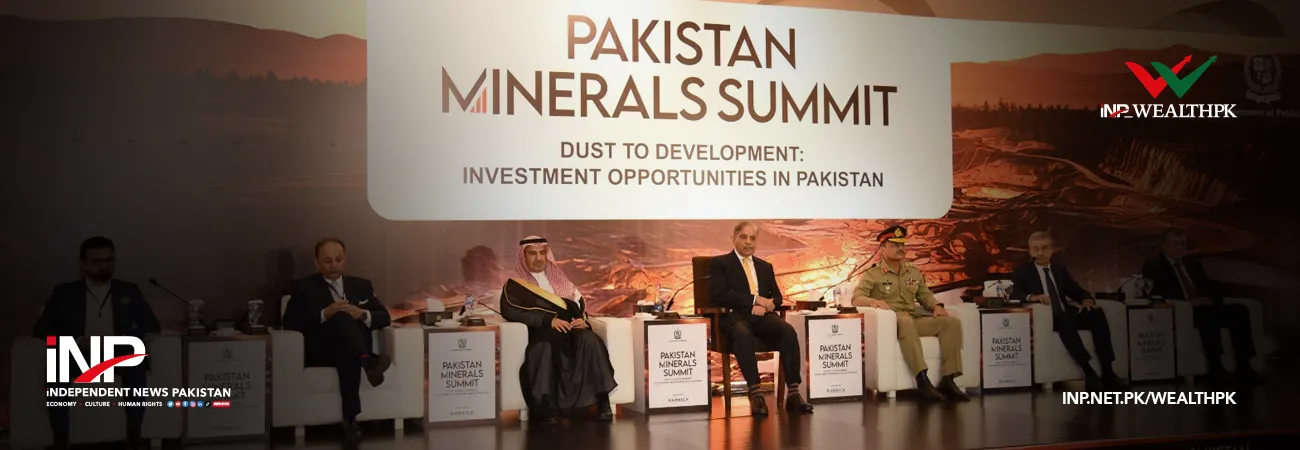INP-WealthPk
Mansoor Sadiq
Pakistan’s mineral deposits, if tapped fully, can rid the country of economic challenges and lead it towards the path of progress and prosperity. According to reports, Pakistan has approximately $6 trillion worth of mineral deposits, but the country desperately needs to explore this treasure trove by attracting foreign investment. This could best be done by arranging world mineral summits to attract international investors and industry experts. Bilal Khan, a mineral sector expert and Chief Executive Officer of Safi Gems and Minerals International, told WealthPK that exploiting Pakistan’s natural resources could help the country overcome its economic challenges. He said the newly-formed Special Investment Facilitation Council (SIFC) had organised a mineral summit recently, which was a welcome and positive undertaking on the part of the government.
He said such initiatives should be held frequently to not only attract international investors but also encourage the local mining companies to tap the mineral deposits. Bilal also pointed out that it was heartening that Pakistan was now using local human resources to exploit the mineral wealth as university graduates were being engaged in research and exploration undertakings with the assistance of international companies. Highlighting the mineral deposits of Pakistan, Bilal disclosed that Pakistan was blessed with 6,000 million tonnes of copper reserves, 1,656 million tonnes of gold reserves and 618 million tonne reserves of silver. He said, unfortunately, during the last 75 years, Pakistan had not been able to devise a mechanism to exploit its mineral deposits.
He said there were vast reserves of metallic and non-metallic deposits in the country, but owing to the unavailability of respective technologies, Pakistan had not been able to unearth its hidden reserves. The mineral sector expert pointed out that irony of the situation was that iron ore extracted from Pakistan was exported to China, and was later imported with value addition, inflating Pakistan’s import bill. Bilal pointed out that Pakistan’s industry was import-dependent, and all the major industries relied on imported raw materials. He said steel industries were just the assembling units as they had no expertise in processing the iron ore to make raw materials available for industries.
He said due to the falling value of the Pakistani rupee against the US dollar, iron prices had reached Rs350,000 per tonne. He underscored that Pakistan could be able to produce steel products cheaply if it started processing iron ore locally. Sayyed Tariq Hassni, a noted geologist, while talking to WealthPK, said the government needed to allocate adequate financial resources for research and development in the mining sector to put the exploration and processing methods on modern lines. As per statistics of the Trade Development Authority of Pakistan, the country is rich in natural resources with extensive mineral reserves sprawling across 600,000 square kilometres.
Among the 92 identified minerals, 52 are commercially mined, boasting an impressive annual production capacity of 68.52 metric million tonnes. The Khewra salt mines rank as the world’s second-largest salt mines. The Reko Diq mine in Balochistan’s Chagai district holds its own distinction as one of the world’s largest undeveloped copper-gold mines, underscoring the immense potential awaiting exploration. “Pakistan is blessed with the bounties of nature and we have to tap these treasures for the country’s progress,” underscored Tariq Hassni.
Credit: INP-WealthPk













